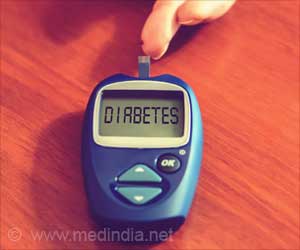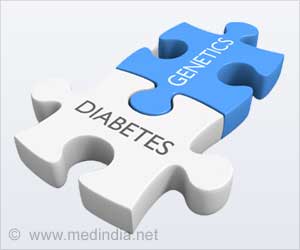When excessive PKC beta is found in the endothelium, the thin layer of cells that line blood vessels, atherosclerosis is exacerbated discovers researchers at Joslin Diabetes Center.

"Heart disease is a major cause of death for both type 1 and type 2 [diabetes]," says George King, M.D., Chief Scientific Officer and Director of Research at Joslin. A team of researchers at Joslin led by Dr. King is one step closer to finding a solution for this insidious problem.
It is known that diabetic episodes of hyperglycemia and elevated levels of fatty acids cause the body to produce excessive amounts of PKC beta, an enzyme that plays a number of biological roles and has been shown to affect the cardiovascular system.
To study the link between PKC beta and atherosclerosis, scientists compared two groups of mice that were bred without the ability to produce apoliprotein E, a lipoprotein that removes cholesterol and lipids from the blood stream, giving them an innate tendency to develop atherosclerosis. One of these two groups was also bred to produce excessive levels of PKC beta in the endothelium. Both groups were fed a high fat, Western diet for twelve weeks after which researchers assessed their cardiovascular health.
The mice all gained weight at the same rate and had comparable blood pressures, cholesterol, and triglyceride rates. However, the group of mice that had elevated PKC beta experienced drastically higher rates of atherosclerosis. Joslin researchers learned that PKC beta inhibits the body's natural anti-atherogenic responses, which normally prevent fatty deposits from building up in blood vessels. As a result, the amount of aortic plaque in the PKC beta mice was twice that of control mice and their aortic atherosclerotic lesions were 1.7 times larger. Their endothelial walls also displayed signs of increased infection and inflammation.
Researchers believe that this greater instance of cardiovascular disease occurs partly because PKC beta indirectly inhibits the production of the anti-atherogenic, nitric oxide. Nitric oxide is vital to cardiovascular health, reducing the work the heart has to perform to pump blood and lowering the heart rate. In fact, lowered levels of nitric oxide are an early indicator of cardiovascular disease.
Advertisement
"If we could come up with a treatment for decreasing PKC beta, it may decrease the risk of cardiovascular disease in both Type 1 and Type 2 diabetes," says Dr. King.
Advertisement















